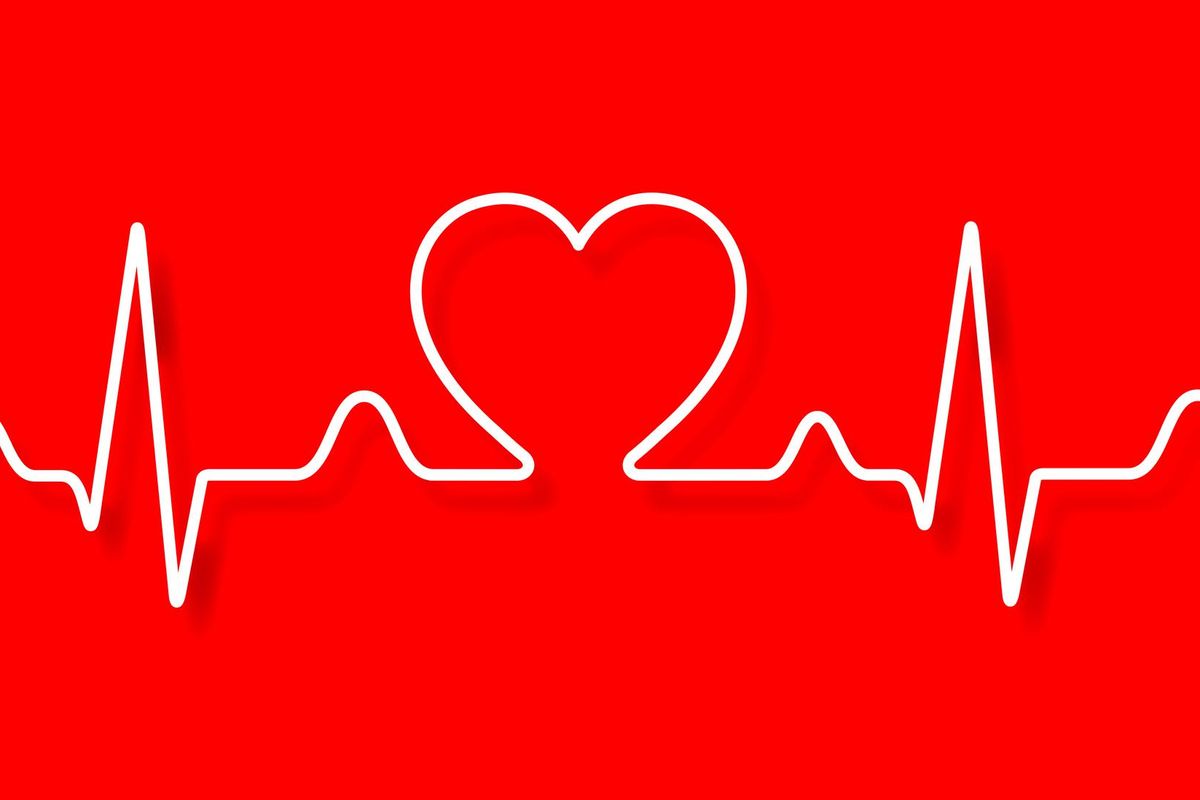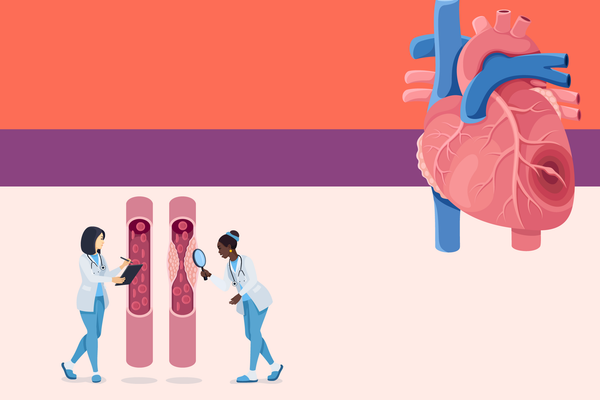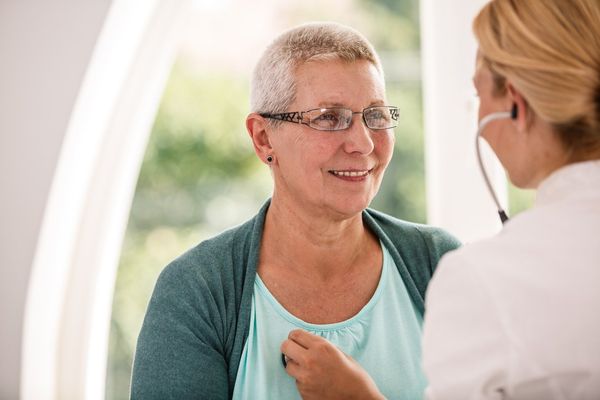Kim Lewis couldn't shake a persistent cough. She'd been having trouble sleeping and had no energy. After six months, Lewis' primary care provider (PCP) sent her to a lung specialist. Within minutes, the specialist sent Lewis to the hospital; he noticed that her lips were turning blue.
Lewis insisted on driving herself and was lucky to make it to the emergency room before falling into a coma. She woke up three days later to terrifying news: She had myocarditis and chronic heart failure. She was 32 years old.
At first, Lewis didn't believe the diagnosis. A single mother with a full-time job, she didn't have time for it.
"I was a little too busy to have heart failure," Lewis said. "That was not on my agenda."
Now 54, Lewis has avoided hospitalization for 10 years through diet, exercise and medication.
She also now understands there were warning signs that she and her PCP, whom she trusted completely, missed. Busy and stressed, she'd gained weight from a fast food diet and lack of exercise. She'd also been retaining fluid in her stomach.
Not wanting to appear weak, though, Lewis never talked about her health problems or sought a second opinion.
"I should have pushed harder," she said. "I guess I thought I was invincible. I never thought it was anything serious."
Though Lewis understands heart disease much better now, overall awareness is at a 10-year low, according to a 2020 American Heart Association (AHA) survey. In 2019, only 44% of women surveyed knew that heart disease is the leading cause of death for women, down from 65% a decade before. Awareness declined for every age and ethnic group other than women over age 65, whose awareness remained steady.
Dr. Mary Cushman, professor of medicine at the University of Vermont Larner College of Medicine and one of the study's lead authors, finds the survey results especially troubling because cardiovascular disease is largely preventable.
"If women don't know that [heart disease] is their number one cause of death, then the ability to help them prevent it is greatly reduced," Cushman said.
Alarmingly, women with high blood pressure — a key contributor to heart disease — were 30% less aware that heart disease kills more women than any other cause.
"That tells us that the healthcare system is not educating women on these basic facts," Cushman said. "We must do better for our patients."
Healthcare providers in all medical specialties can improve awareness by proactively discussing cardiovascular risks with their female patients, according to Dr. Nieca Goldberg, medical director of NYU Women's Heart Program and a member of HealthyWomen's Women's Health Advisory Council.
"This has to be a collective effort of all doctors who take care of women," Goldberg said.
The AHA study showed less awareness among younger women, lower-income women and women of color, particularly Hispanic and non-Hispanic Black women, suggesting that existing education campaigns aren't working.
"Current programs that raise awareness are not reaching all women," Goldberg said. "There needs to be a new effort to personalize this message to younger and diverse populations of women."
Cushman agrees and thinks that education needs to start much earlier.
"The finding tells us that we need to find new ways to reach all women," Cushman said. "In all cases, the reach must be culturally appropriate and begin with how we educate children in schools about threats to their health as they grow up."
Lindsey Huie only discovered her own cardiovascular risks two years ago, when she was 36. A soccer player and coach, Huie was at the top of her game — literally. She had come out of retirement from competitive soccer to join a semi-pro team after a 15-year hiatus. Without missing a beat, Huie performed well on a team of players half her age.
When she felt out of breath one day while walking up a hill to coach a practice, she thought it was odd, given her fitness. Then she felt a strange sensation, like a piece of paper tearing in the middle of her chest. She started sweating profusely and felt like she was going to throw up. She felt like her chest was on fire.
A nurse at the field said Huie's symptoms sounded like a heart attack, except that Huie was too young for that. Assuming she was experiencing anxiety and heartburn, Huie felt so ridiculous going to a hospital that she insisted on driving herself to an urgent care center instead.
When the physician there sent her to the hospital, Huie was most concerned with how long it would take — she had to get home to help her 10-year old daughter study for a social studies test the next day. She was not prepared to learn she'd had a heart attack or for her shocking diagnosis: spontaneous coronary artery dissection (SCAD), a life-threatening condition that can affect people without obvious risks or previous symptoms.
Now a volunteer with the American Heart Association's Go Red for Women campaign, Huie recognizes her risk factors in hindsight: playing an extreme sport and living with extreme stress. She had had five young children, a beloved 16-year old dog with cancer and ongoing conflict with family members who did not support her when she came out as a lesbian.
Huie realizes she could have died while worrying more about her to-do list than her health.
"I obviously felt like a complete fool for not having gone in the ambulance because what if my heart attack [had] progressed and gotten worse [during the drive]?" Huie said. "I had no idea that heart disease claims a woman's life every 80 seconds."
Huie urges women to get routine checkups and stay on top of the numbers that affect their cardiovascular risks, such as good and bad cholesterol, blood pressure, and body mass index.
She also encourages women not to wait until they have symptoms to address their risks. "You can get ahead of these issues if you just have that level of awareness."
This resource was created with support from Esperion.
- It's Not Just Your Mother's Heart Disease: Why Heart Disease Is ... ›
- My Heart Attack at 43 Was Terrifying. Then It Changed My Life for ... ›
- Did You Know That Heart Disease Affects Women of Color ... ›
- Heart Disease - HealthyWomen ›
- What Is Heart Disease? - HealthyWomen ›
- Heart Disease: What Women Don’t Know - HealthyWomen ›
- Symptoms of Heart Attacks in Women - HealthyWomen ›
- Symptoms of Heart Attacks in Women - HealthyWomen ›
- Spontaneous Coronary Artery Dissection 101 - HealthyWomen ›
- Nieca Goldberg, MD Talks About the Go Red for Women Campaign - HealthyWomen ›




